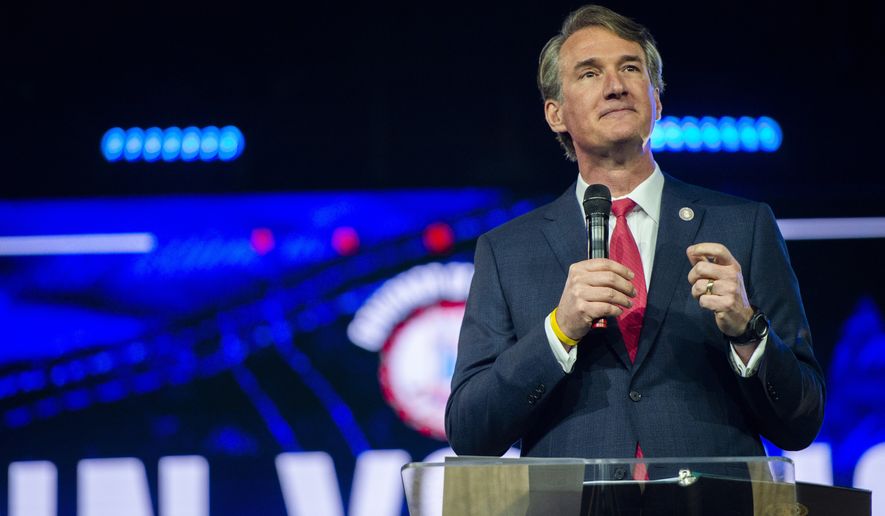Virginia Gov. Glenn Youngkin told thousands of Liberty University students Friday that passing “the most amazing job interview you can possibly imagine,” as he called his 2021 gubernatorial campaign, and now serving in Richmond, “has been an absolute affirmation of my faith.”
Mr. Youngkin spoke at a morning convocation at the Lynchburg campus of what is believed to be the country’s largest evangelical university. A crowd estimated at 10,000 students packed the school’s Vines Center for the meeting, which had the vibe of a revival as a worship music team opened the event.
The governor, himself an evangelical, explained the spiritual dimension of his first run for elected office.
He said it wasn’t a matter of God telling him “to become governor.” Instead, it was “a clear knowledge through my prayer life, that I was supposed to quit my job and follow His lead,” Mr. Youngkin said, adding, “the way this started was actually, yes, in my prayer life with the Lord.”
Mr. Youngkin said God “was preparing a path” for himself and his wife, Suzanne, when they decided he should run.
He said it was “not a path to victory, but a path for us to walk on, and trust. We were saying faithfully, ‘Here we are. Send us.’ What happened after that was amazing. And it wasn’t a Glenn thing. It was a God thing.”
The governor said he was a “Psalm 121” leader, and quoted the biblical chapter’s first two verses: “I will lift up my eyes to the hills — From whence comes my help? My help comes from the Lord, Who made heaven and earth.”
Mr. Youngkin, who closed his address by praying for the students at the event, praised Liberty students and alumni as “a force for good,” before urging them to consider a political career. He noted that Liberty graduates worked on his staff, in the commonwealth’s government, and hold public office, but said reinforcements are needed.
“Christians need to serve on the front lines whether it’s in a remote village on the other side of the globe or in our backyard,” he said.
The governor called for Christians to serve “in places of power where policy will determine whether our values are legislated or negated. Let me be clear, someone’s values will be legislated — someone’s. The only question is whose values will they be?”
• Mark A. Kellner can be reached at mkellner@washingtontimes.com.




Please read our comment policy before commenting.